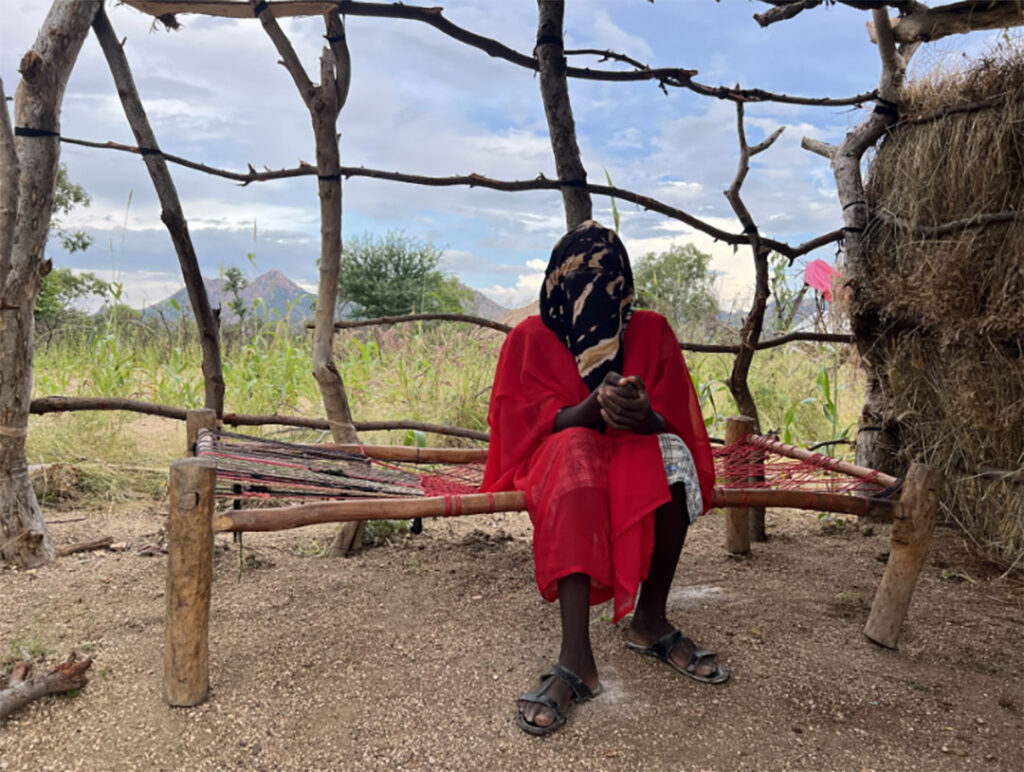ADF STAFF
Hania was living in Fayu in Sudan’s South Kordofan State when fighters from the Rapid Support Forces (RSF) arrived in the community.
Three months pregnant at the time, Hania was abducted with other women and young girls and taken to a camp where they were imprisoned with 30 other women from the region.
“They made a corral, like for animals, with wires and sticks,” Hania, 18, told Human Rights Watch (HRW). “Then they put us in chains. Ten girls to one set of chains.”
Like other Nuba women interviewed by HRW, Hania was held as a sex slave. RSF fighters raped her multiple times a day for three months. HRW used a pseudonym for Hania to protect her.
Eventually, Hania escaped the camp. But she will never be the same.
“I cannot function normally,” she told HRW. “I cannot finish even the simplest tasks, to the degree people ask if I’ve lost my mind. I tell them after all the blood and dead people I’ve seen, my head wouldn’t be right.”
Across South Kordofan, human rights advocates have documented nearly 80 rapes of women and girls by RSF fighters in the first half of 2024. The victims ranged in age from 7 years old to over 50.
The actual toll of RSF’s sexual crimes probably is higher than has been reported, HRW researchers wrote.
Since war broke out between the RSF and the Sudanese Armed Forces (SAF) in April 2023, the ethnic Arabs that dominate the RSF focused much of their energy on attacking non-Arab communities across the territories it occupies.
A United Nations fact-finding mission in October 2024 described the RSF’s sexual violence as “staggering.”
In Darfur, RSF fighters have raped women from the Fur, Masalit and Zaghawa ethnic communities.
One victim in El Geneina, the capital of West Darfur, told U.N. researchers that her rapist held her at gunpoint and said: “We will make you, the Masalit girls, give birth to Arab children.”
In South Kordofan, Hania reported that one of her friends became pregnant after being raped. Her family told HRW they had hidden her after her uncle threatened to kill her.
South Kordofan largely is under the control of the majority-Nuba Sudan People’s Liberation Movement-North (SPLM-N), which has fought the RSF and the SAF to protect state residents from the ongoing conflict.
Victims of sexual assault told researchers their attackers wore RSF uniforms. In some cases, the victims knew their attackers. In other cases, attackers raped victims in their homes after killing other family members.
One unnamed Nuba woman told HRW researchers that her husband and son tried to protect her from RSF attackers who stormed their family compound.
“One of the RSF fighters shot and killed them,” she said. “Then they kept raping me, all six of them.”
According to Belkis Wille, HRW’s associate crisis and conflict director, rape victims’ stories illustrate the magnitude of sexual violence RSF fighters are committing in areas they control.
“Conflict-related sexual violence is a serious violation of international humanitarian law, or the laws of war, and a war crime,” HRW researchers wrote in their report. “Where people are held in conditions of enslavement — when their captors exercise control akin to the right of ownership over them — and subject to sexual violence, this constitutes sexual slavery.”
HRW researchers called for the U.N. and African Union to launch a mission to protect civilians from the violence pervading Sudan. The mission should include documenting cases and providing help to assault survivors, they wrote. The U.N. should boost support for a fact-finding mission to help bring perpetrators to justice, they added.
“Sudanese victims have barely had access to services, let alone redress or meaningful efforts to stop these horrific crimes,” Wille said in the HRW report.

